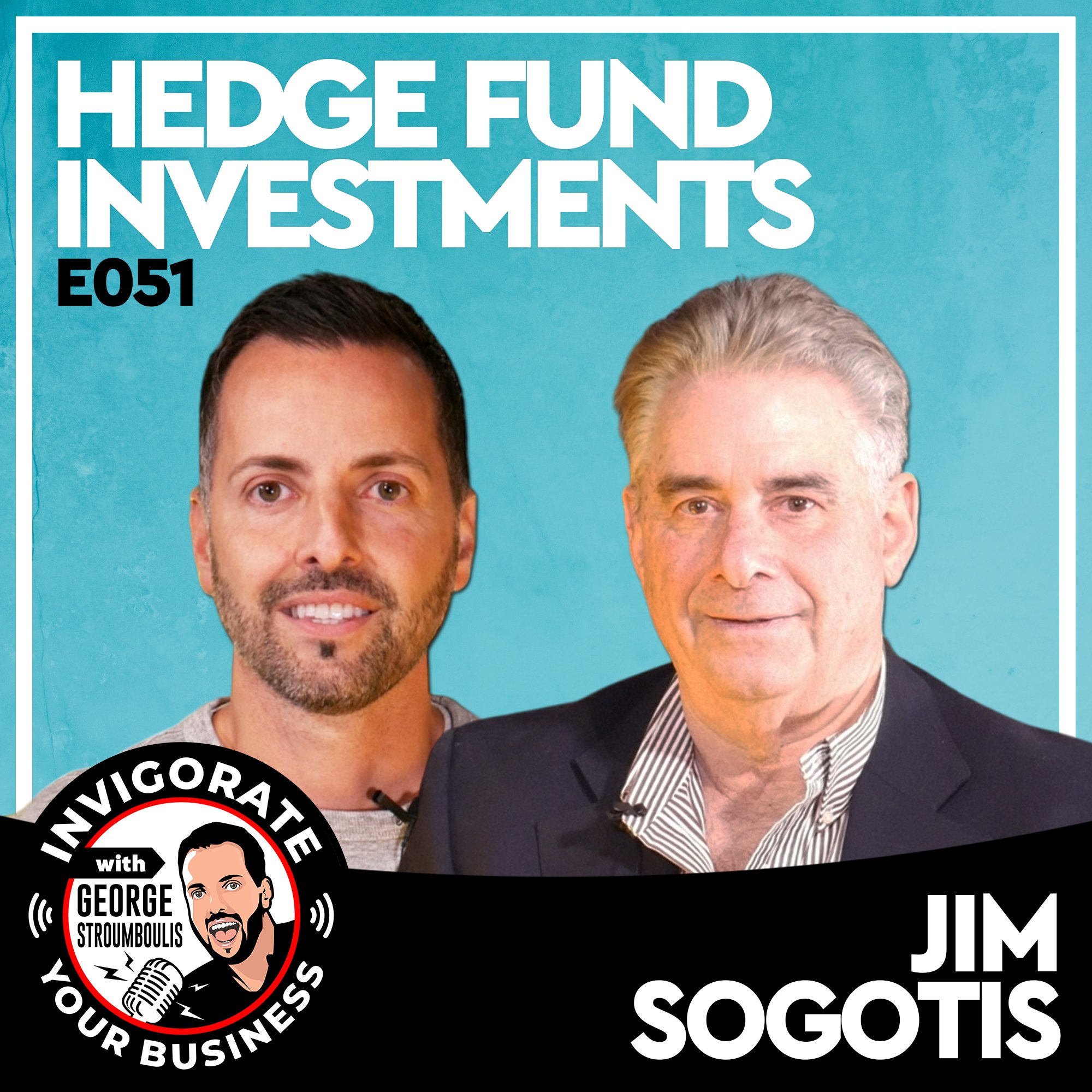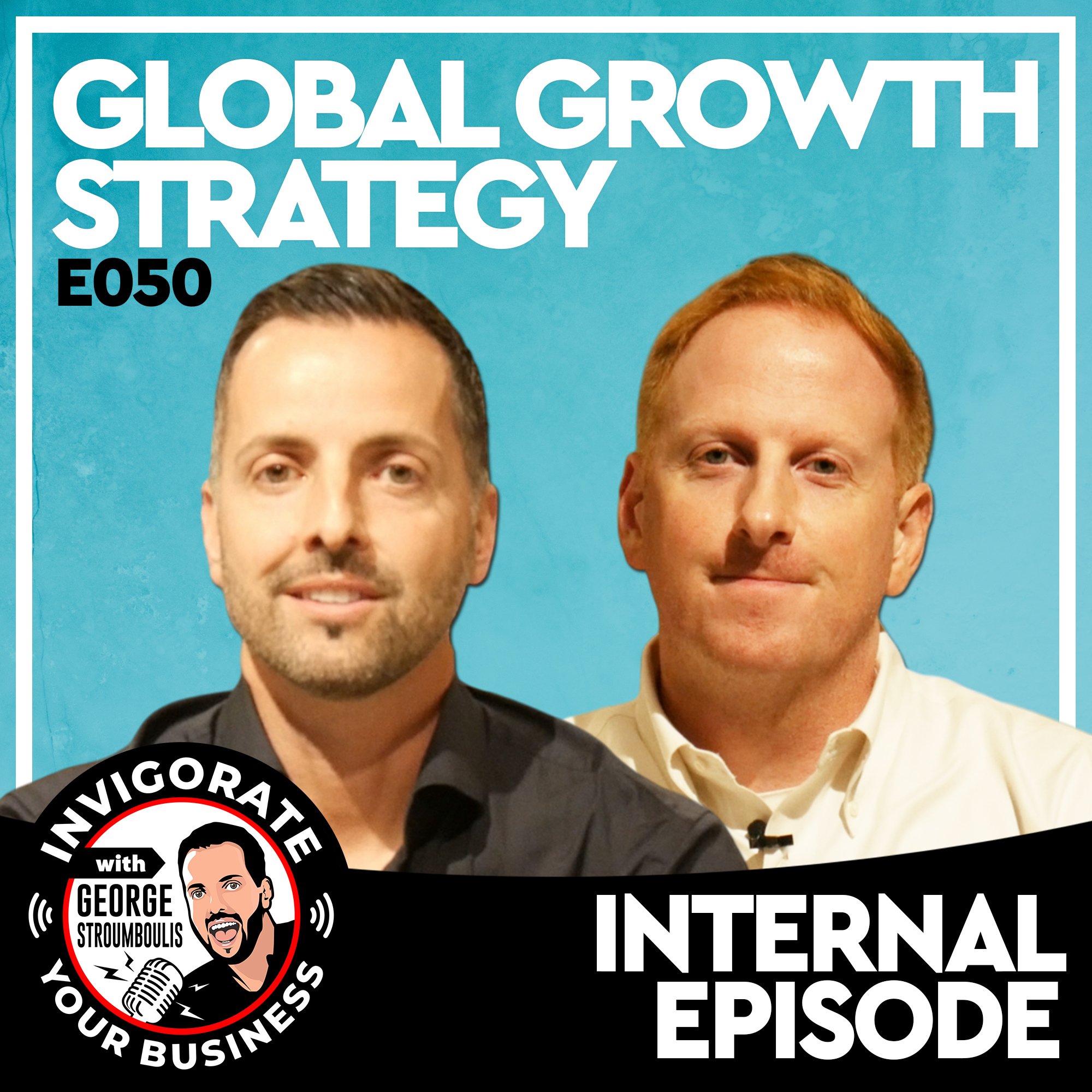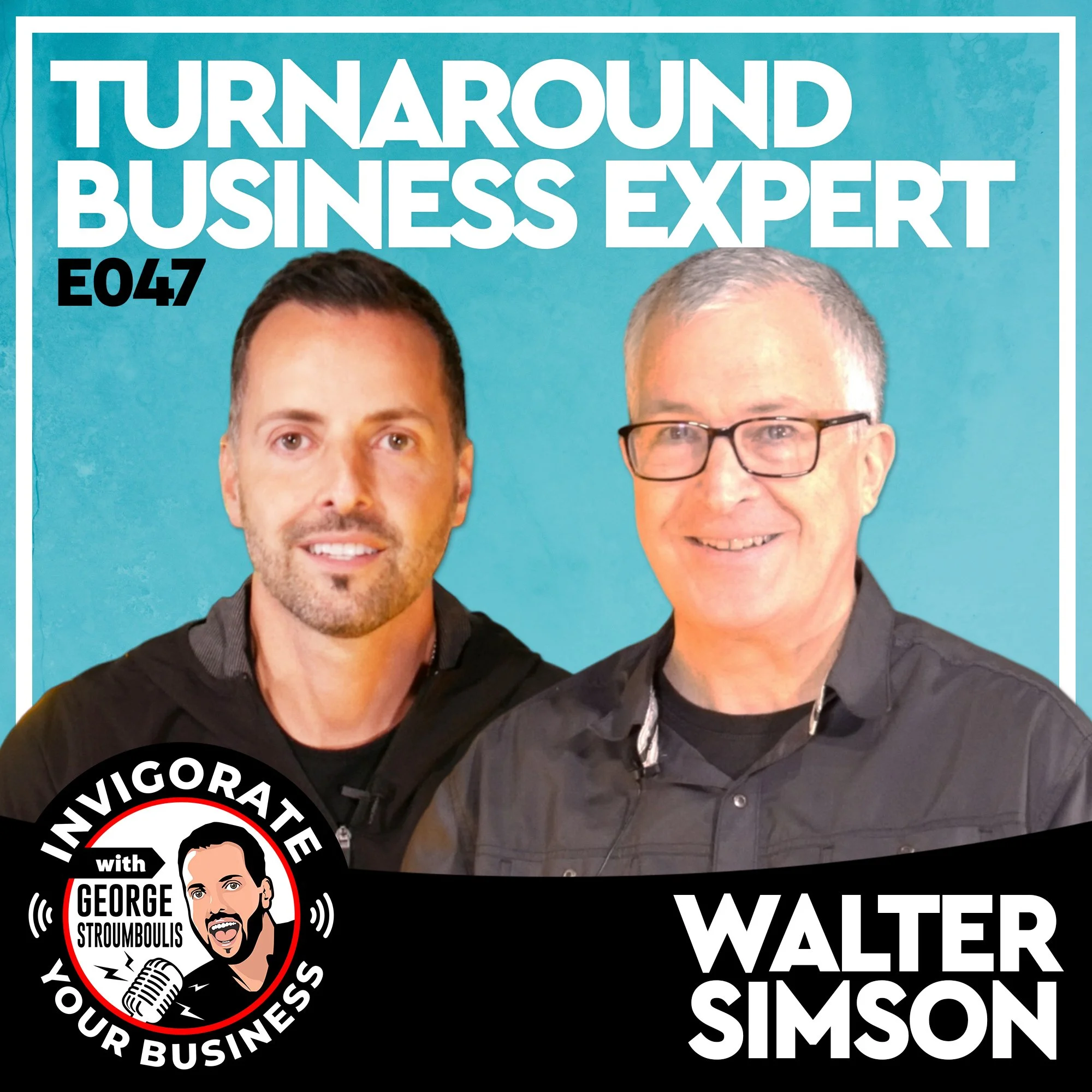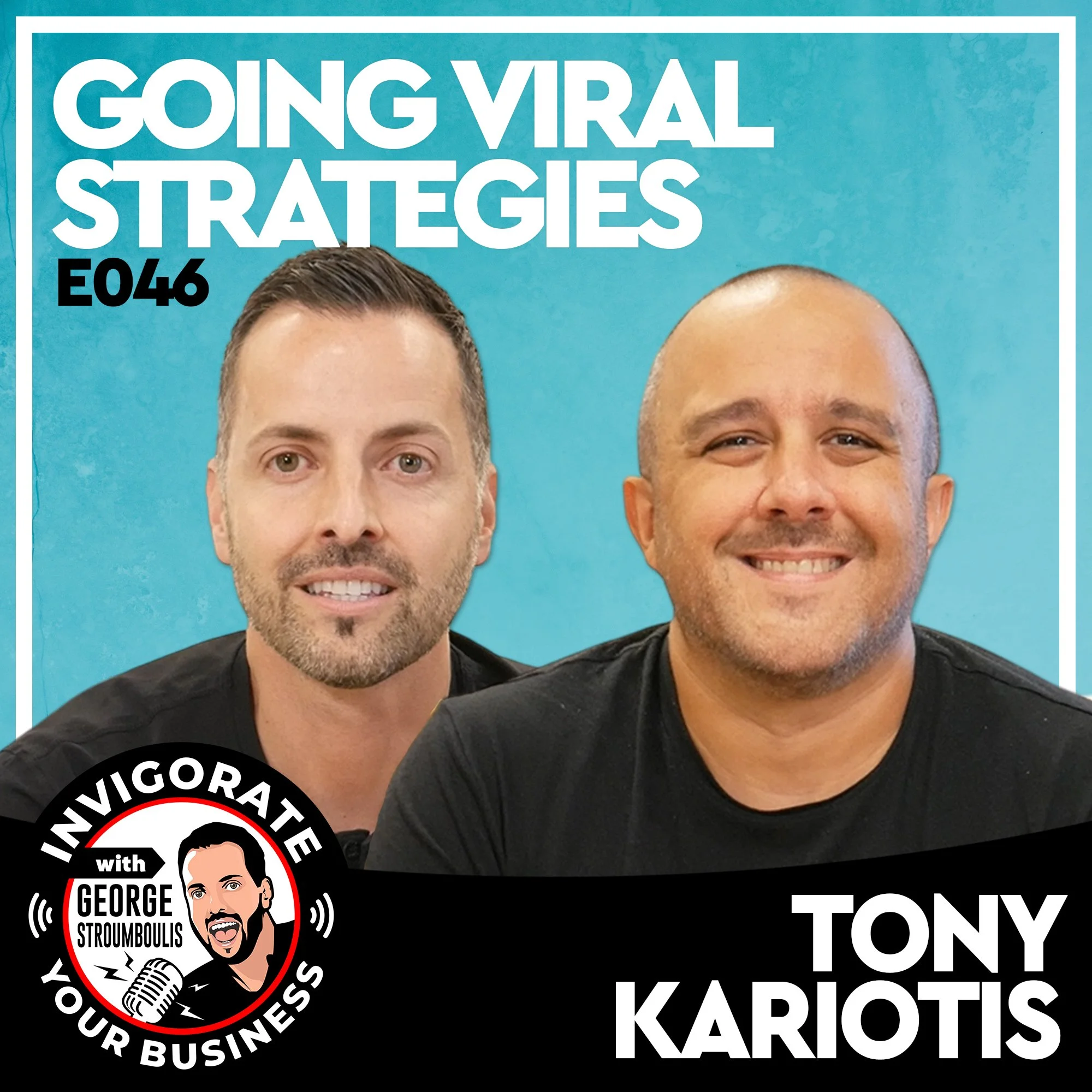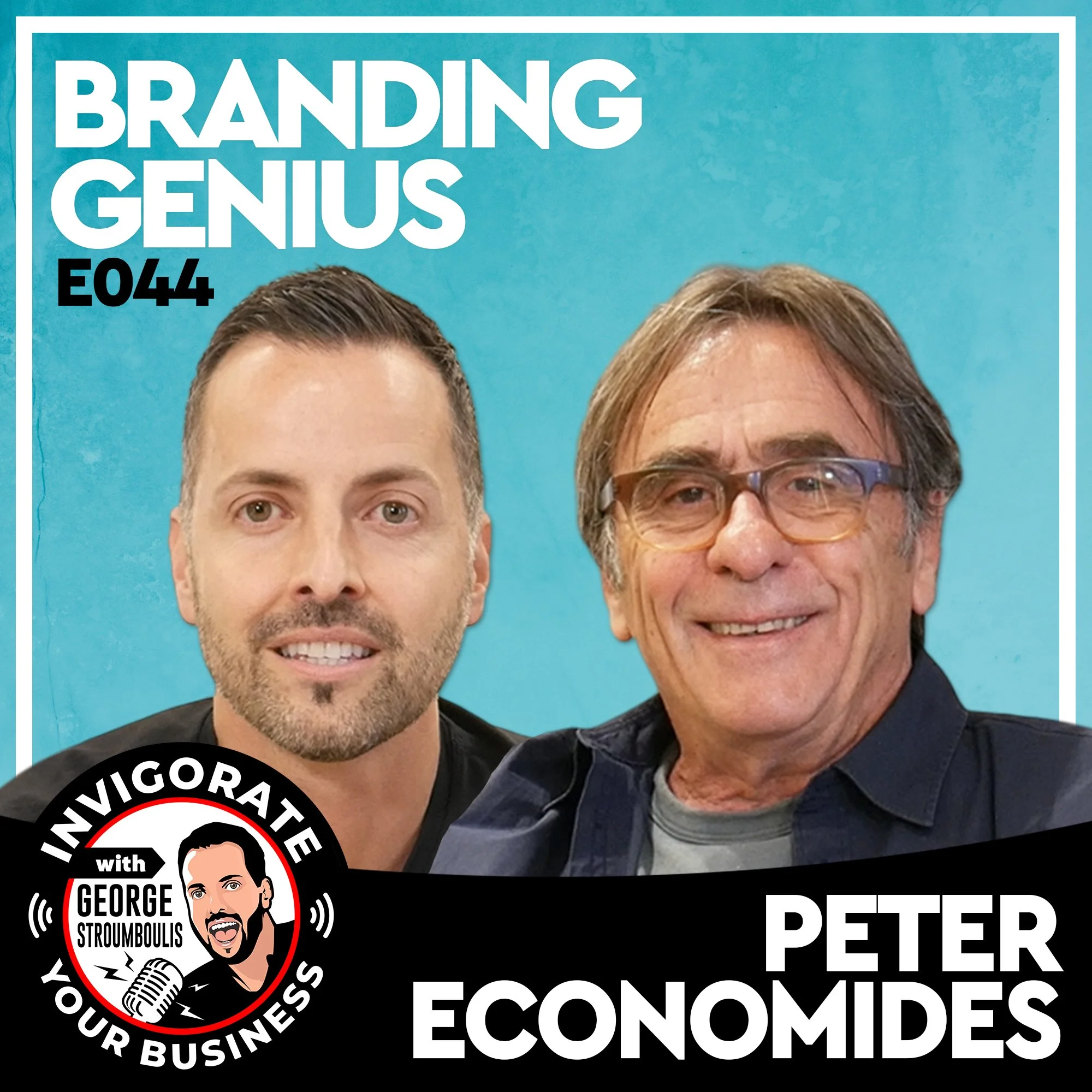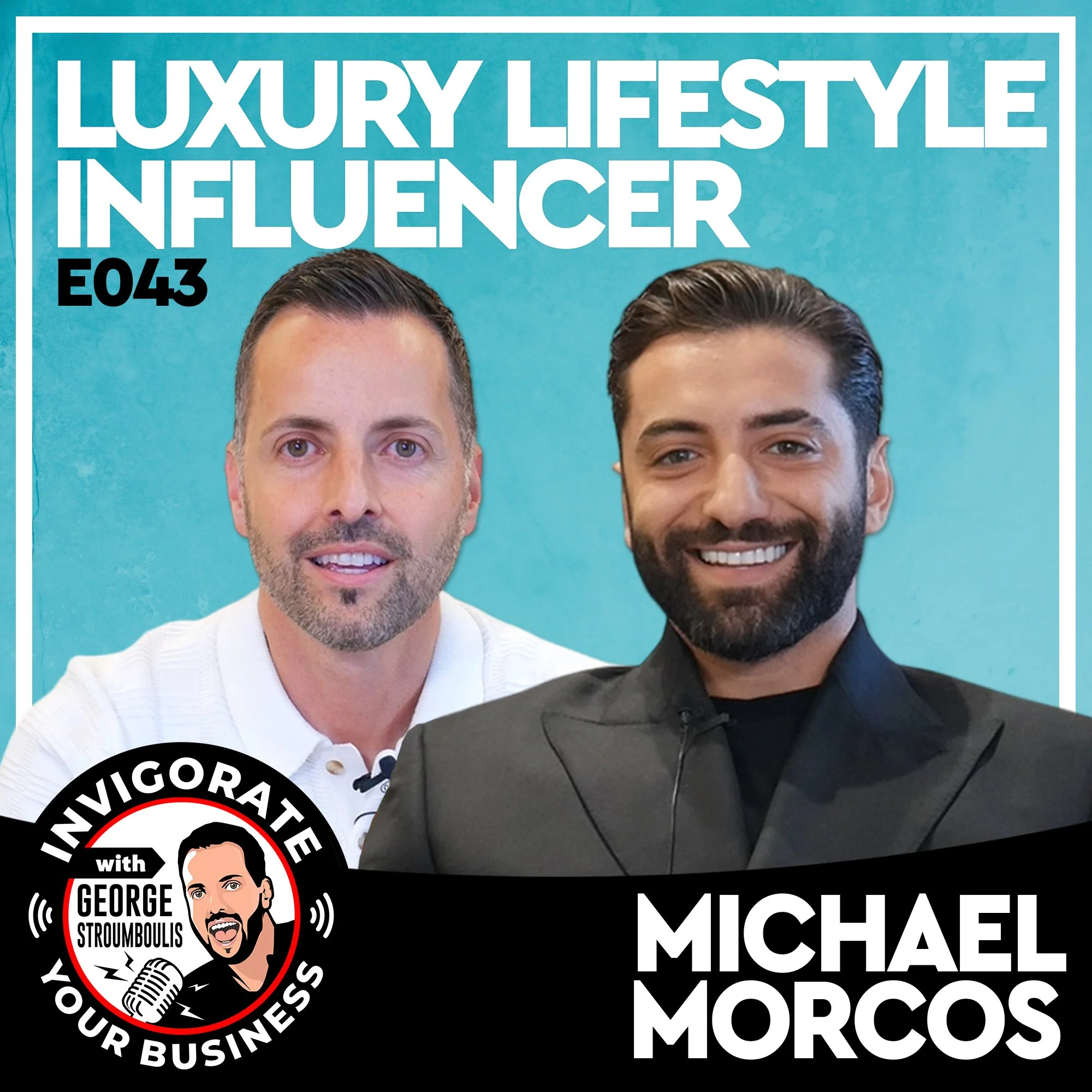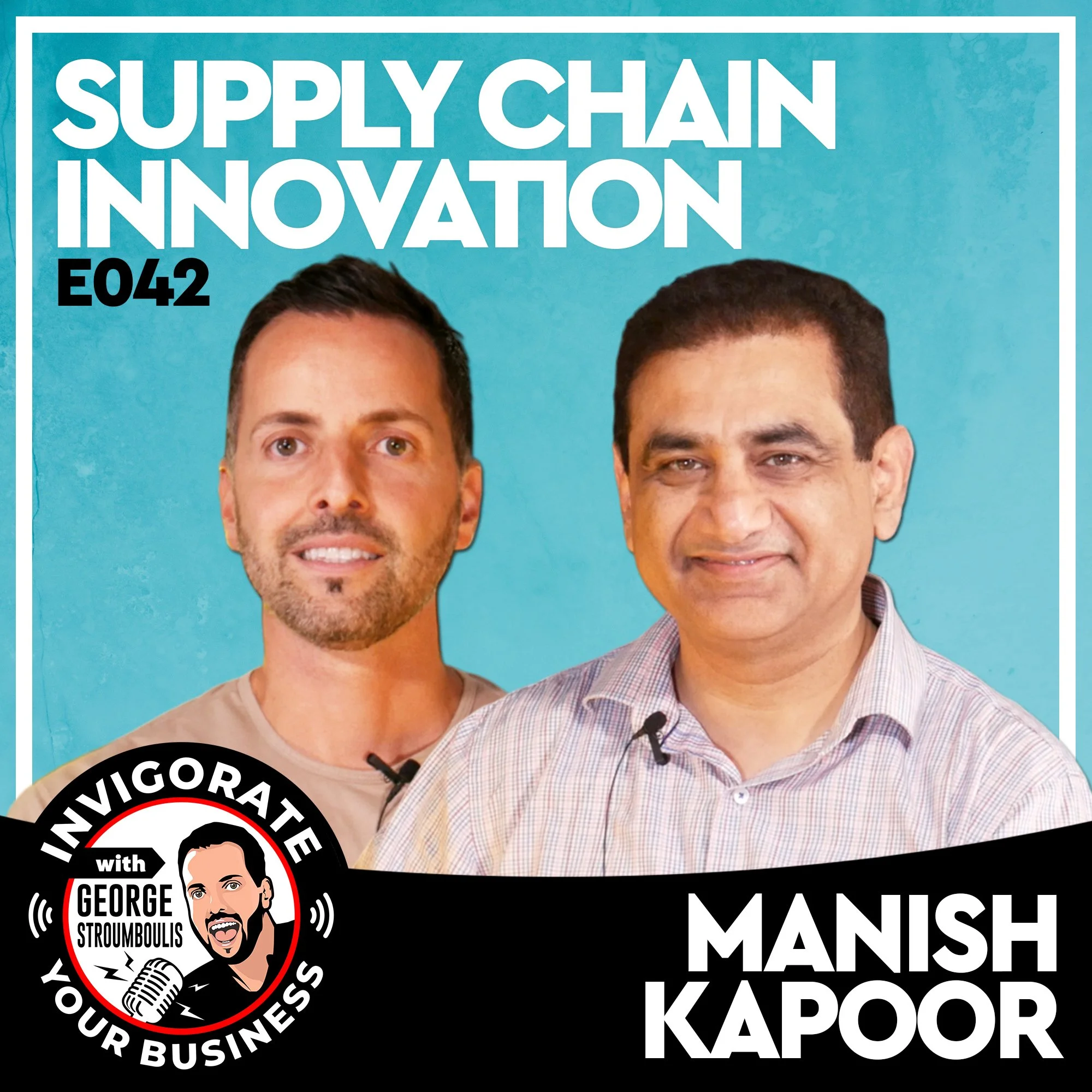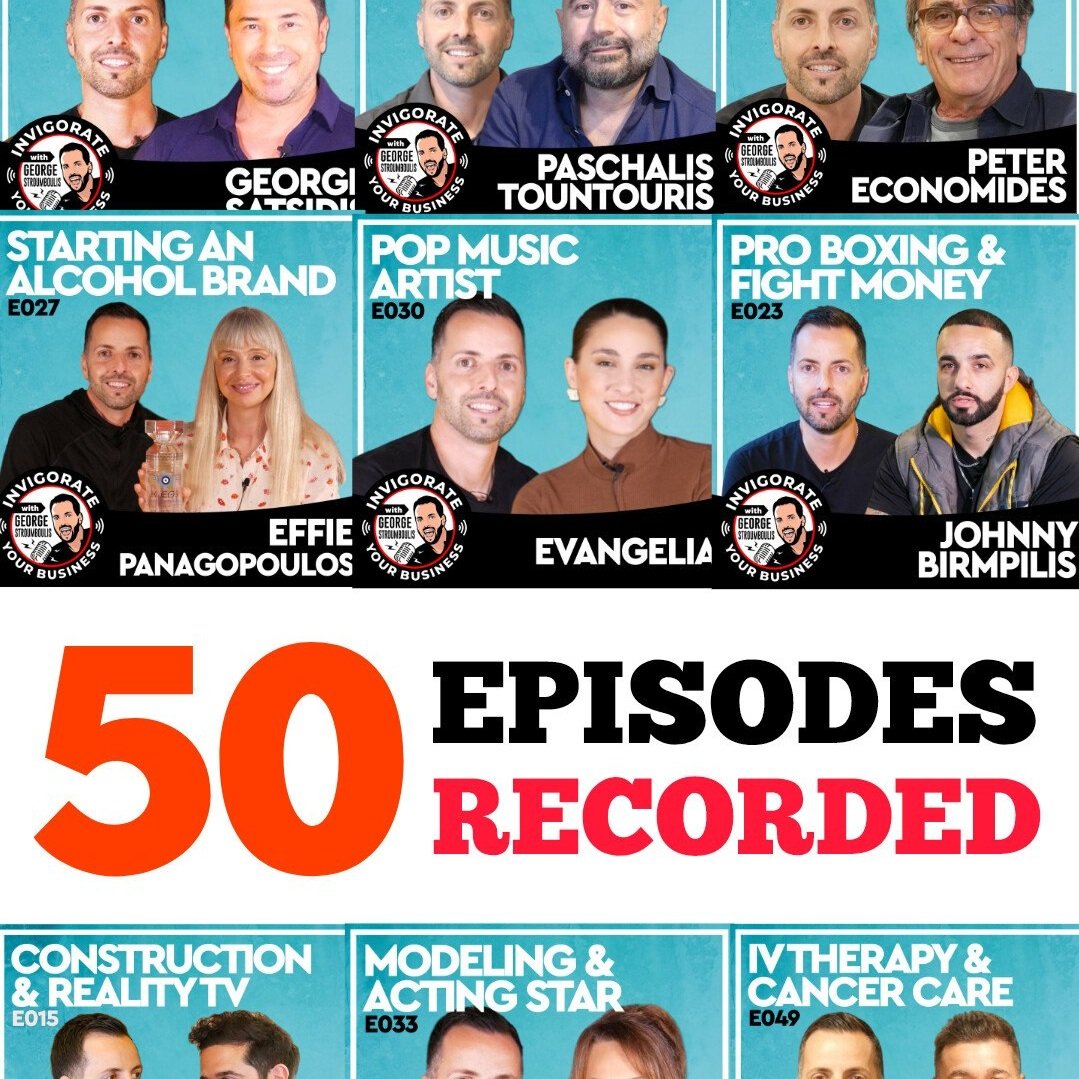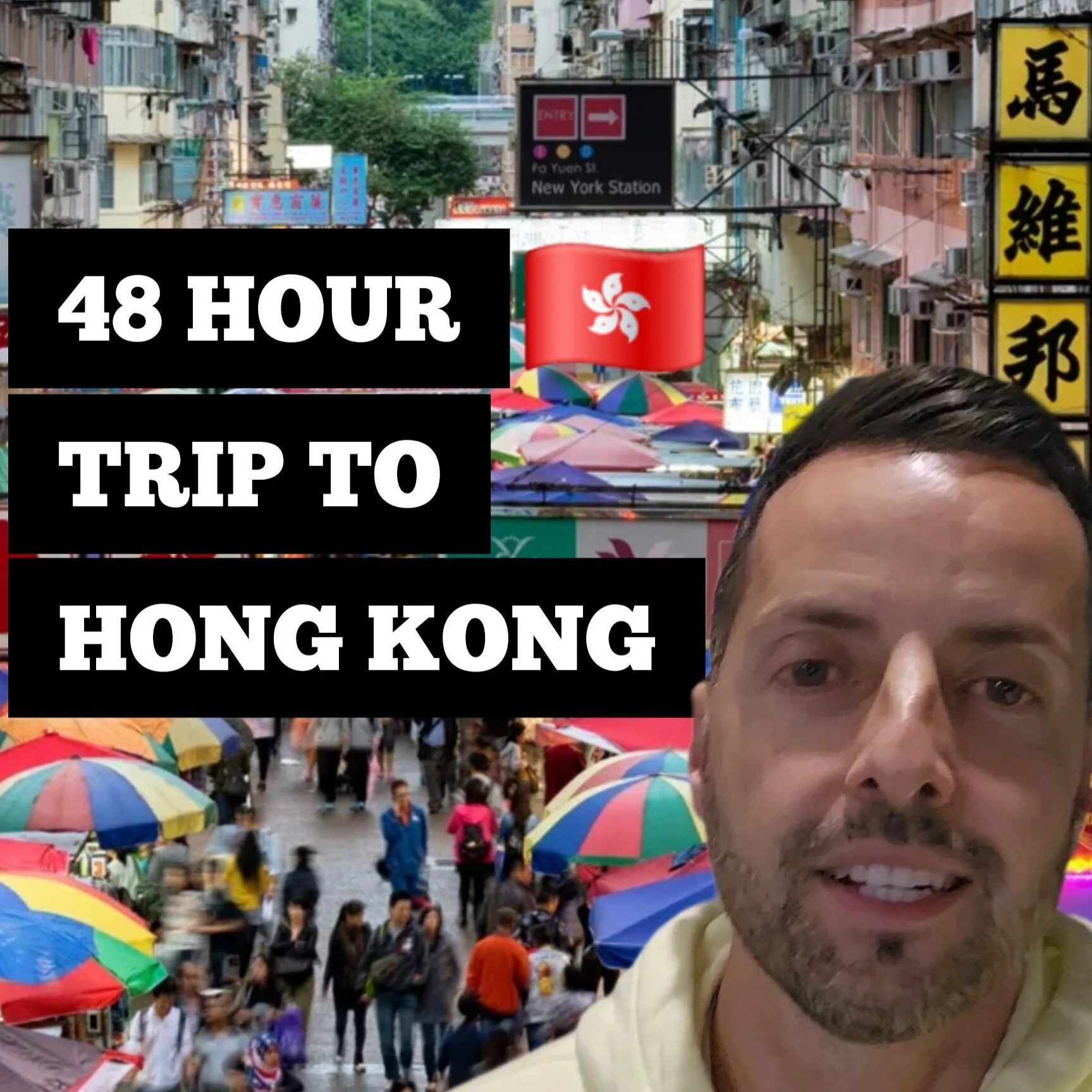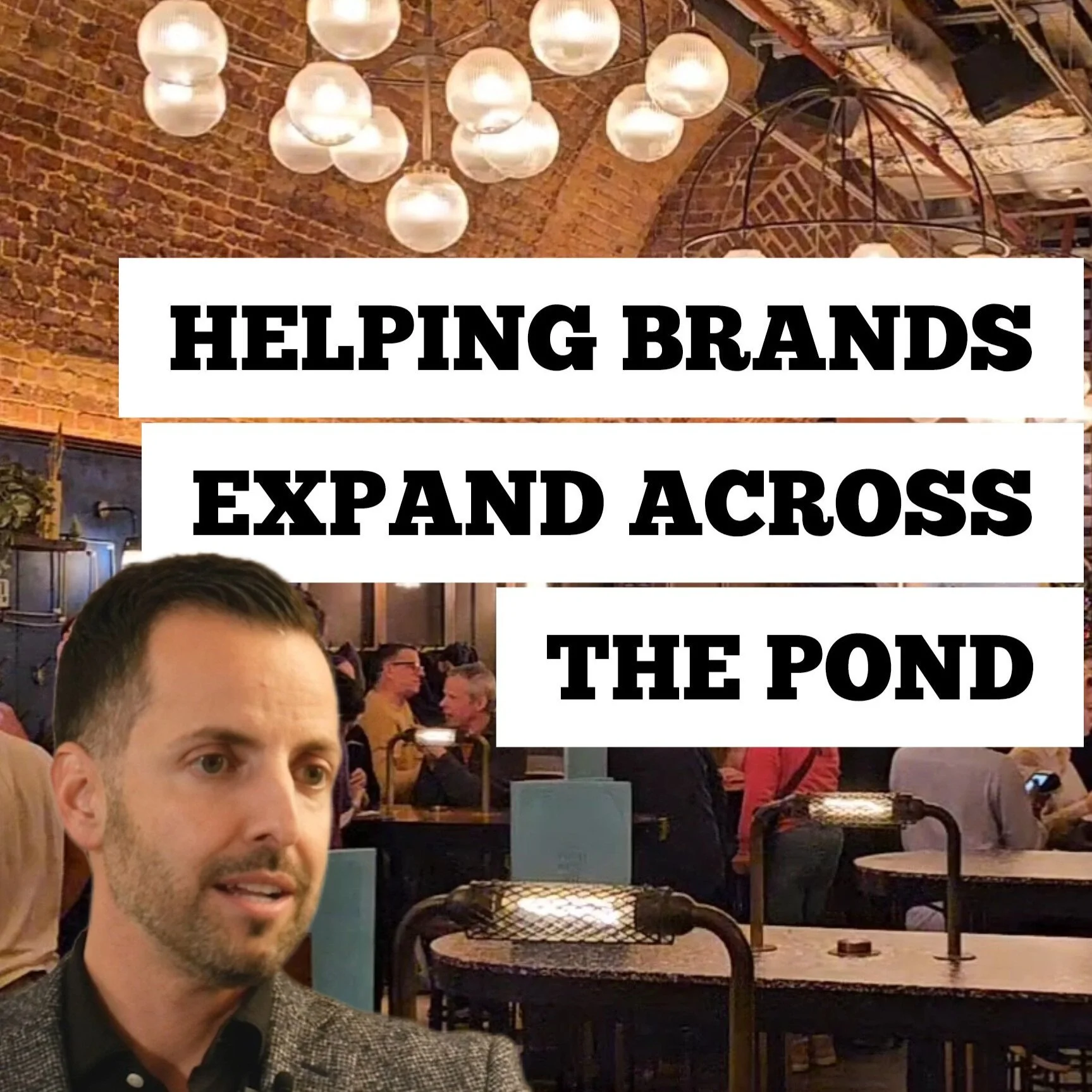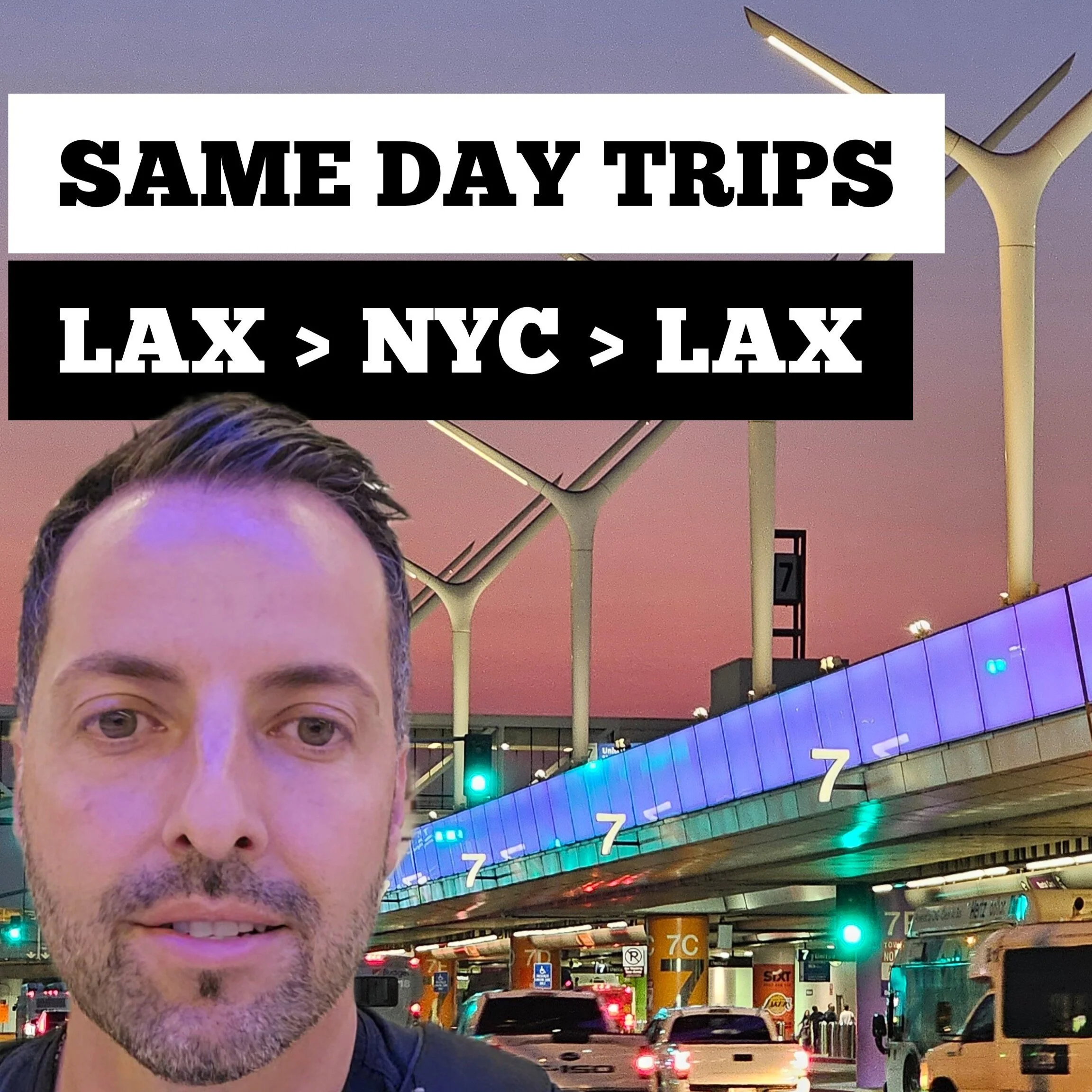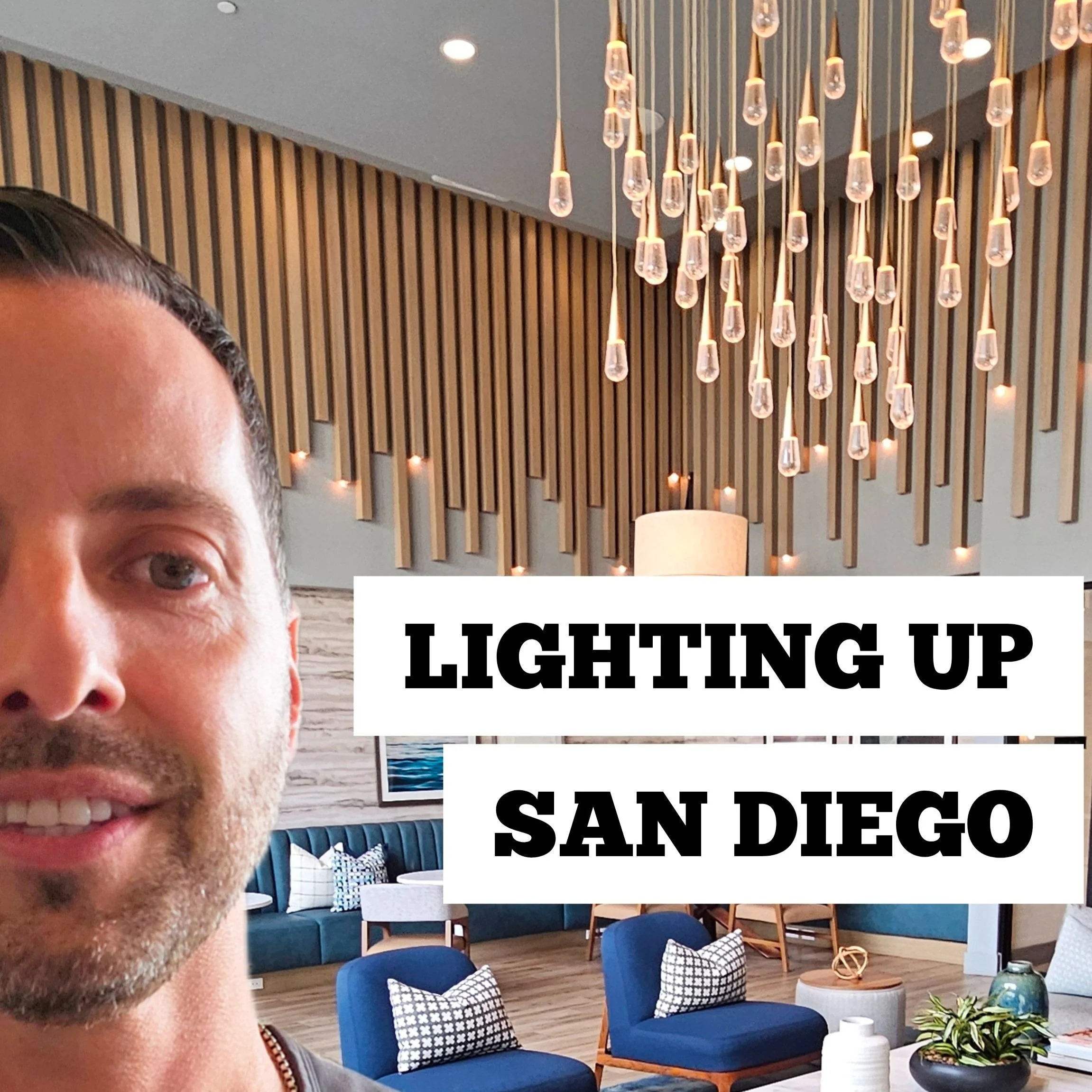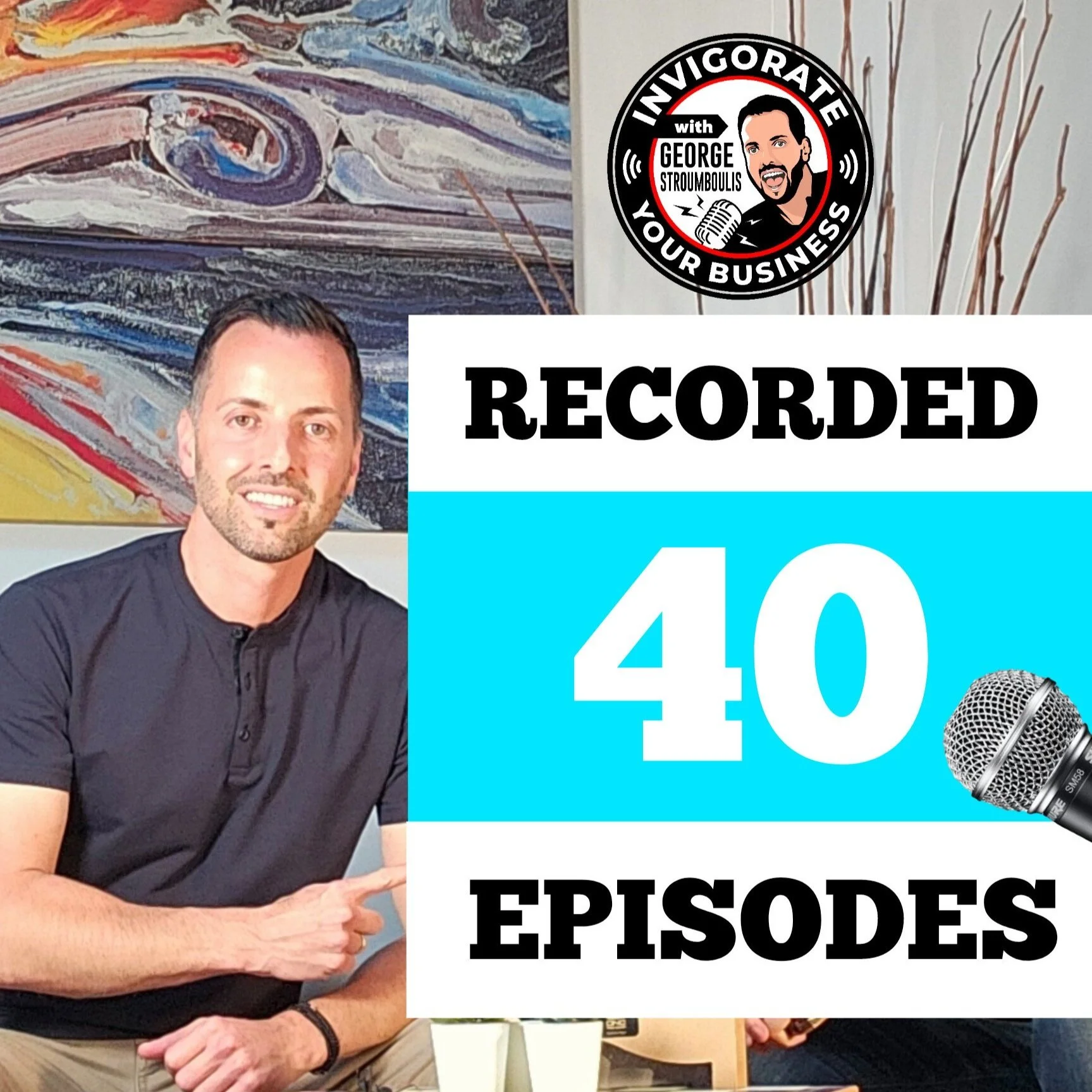TALKING INTERNATIONAL BUSINESS & GLOBAL SUCCESS ON THE UNDERDOG'S EDGE PODCAST
I sat down with the host of the Underdog’s Edge to discuss international business, keys to building a successful business in multiple markets and what drives me to do what I do. Have a listen as we dive into several different topics with host, Blake Hawkins.
“I grew up in the restaurant industry from four years old, I remember. By five, six, I remember, in the back, chopping lettuce, prepping french fries, helping the restaurant industry. So, at a young age, I was learning. My sister and myself, we were learning about the economics of bacon and buying produce batter and doing all this stuff, and it was the ultimate business class, business study program from a young age that before I even got into high school.”
Listen to this episode of the Underdog’s Edge Podcast where Blake Hawkins interviews about my business.
Feb 24, 2022 In this episode, I interview George Stroumboulis from Canada! George now lives in Orange County, California with his wife and children. His business is international in 30 different countries across the globe. George breaks down the keys to building a successful international business and the challenges with world-wide dealings. This is a exciting episode where we expand our horizons to world-wide business and the key factors to success. Tune in to learn how to build a team, the important factors with picking the right business partner, and how to navigate different culture differences in business!
READ THE FULL TRANSCRIPT BELOW:
The Underdog's Edge "International Business, Keys to Global Success"
Blake Hawkins: All right, guys, and I have a special guest here today for the podcast. George Stroumboulis from Orange County, California. Actually, born in Canada, lived in New York City. Now, he's in California. And George is an international business person. Right now, he's focusing on manufacturing all across the world but he's done so many different ventures in real estate, media, TV production, you name it. So, we're going to jump right into it, George. First, thank you for being on the podcast today, man, and I’m so glad we finally got connected and we're getting this rolling, man.
George Stroumboulis: Absolutely. Very, very excited and thank you for the intro, and just ready to jump into it.
Blake Hawkins: Awesome, man. Awesome. George, so, let's start right from the beginning. I mean, you're an entrepreneur, right? I feel like us entrepreneurs are wired differently and I feel like we've kind of been like that since day one. So, what got you on the path to business and entrepreneurship?
George Stroumboulis: Sure. So, born and raised in Canada to immigrant parents from Greece, and when you're an immigrant in a foreign country, right, you can't just go and work. You start your own businesses, right? So, there's the stereotypical professions that certain cultures gravitate to. I can speak to it about my people. So, being Greek background, it was always the restaurant industry. So, my parents, immediately into the restaurant industry. I grew up in the restaurant industry from four years old, I remember. By five, six, I remember, in the back, chopping lettuce, prepping french fries, helping the restaurant industry. So, at a young age, I was learning. My sister and myself, we were learning about the economics of bacon and buying produce batter and doing all this stuff, and it was the ultimate business class, business study program from a young age that before I even got into high school, university and studying business administration and marketing, I was already exposed to it on a small mom-and-pop scale and I was wired at that program to know that either you work, you work your ass off or you're not going to eat. So, that's essentially where it came from. And seeing my parents with no education, didn't know the language locally. You know, people making fun about the food you eat and all this stuff, even growing up in Canada just kind of wired me to go on that path.
Blake Hawkins: Wow, that's awesome, man. So, it's kind of like that they call it the immigrant edge, right? That fire, that, you know, that hustle that is so important, man, to business entrepreneurship and you can't… and I feel like you can't- it's hard to teach, you know, but you, you know, obviously, you've got that from… it sounds like you got that from, you know, watching your parents and growing up in the restaurant business. So, you know, your parents are in the restaurant business, you're growing up with that type of mindset, mentality. You know, throughout your school years, did you know ‘hey, you know, after I graduate high school, you know, I’m going to jump into business’. What was kind of the mindset and the plan after that?
George Stroumboulis: Yeah, so, great question. In high school, like, I remember like, business classes, we had to design like, a business. So, I was coming from the restaurant industry, I’m like, ‘oh, let me design my own nightclub and this and that’. So, it was always ‘I wanted to do my own thing’ but then I was always attracted to big industry, large corporation just seeing that. So, one of my first internships in university was for the European Union Government agencies. So, I was living in Greece while doing my program and I was exposed to the government side of it and working with local hotel owners who wanted to expand and tap into certain funds from the European Union. So, at that point, I started realizing I like the smaller hustle, and I was helping them develop business plans to try to get funding from a government agency. So, the big industry kind of left my aspirations and then I started wanting to do my own thing. So, that's kind of where it started, like, really that exposure. And I remember I was interviewing at the time before returning back to Canada with some corporations for a marketing position and I was just looking at it on what they would be paying me coming out of the box and, you know, where I would have to go, progression wise. And I was just… it didn't appeal to me at that point. So, that's when I went back, regrouped and then started, you know, my first job at a university was in Ireland. So, I moved to Ireland for two years.
Blake Hawkins: Wow.
George Stroumboulis: Which exposed me to the Irish culture, which is amazing. Right? How witty they are. You know, the whole British, Irish wit, it's on another level and they'll run circles around us.
Blake Hawkins: Yeah.
George Stroumboulis: Right, did they just make fun of me or was that a joke together? You know, and by the time you leave, you're like, ‘no, they were making fun of me but I didn't…’ it was just amazing. So, that was my first entry into that. I don't know if that really answers what you were saying.
Blake Hawkins: Yeah. No, absolutely. So, it sounds like, you know, you kind of were, you know, kind of seeking out some different things, you know, getting some different experiences. Did you… I mean, because you… look, you do international business. That's not an everyday thing. So, it's pretty… it's really what attracted me to you at first when I saw your page, I was like, ‘wow, this is really freaking cool, I mean, not only this guy's doing real estate, he's doing it all across the world’, which is super impressive. I mean, did you already… did you always know that you wanted to be kind of international or is that just something that just kind of happened organically?
George Stroumboulis: Yeah, I remember, so, 1994 was the world cup in the United States. They were hosting it here, and I was 13 years old. I’m born in 81. And even then, at 13, my dad who's hard worker, restaurant, he ended up buying us four tickets to drive from Canada to go to Foxoboro Stadium in Boston.
Blake Hawkins: Okay.
George Stroumboulis: To watch Greece play Nigeria. Was the first time Greece ever qualified. So, we drove nine hours, we go there. And even going there, internationally, coming back to the international, I was like, ‘all right, I got to sell something at the game’. So, I started looking over in China, and this is pre Alibaba, pre, you know, mainstream internet, and I found a supplier of those electric fans that have a mist.
Blake Hawkins: Wow, yeah.
George Stroumboulis: And I thought, ‘this is great, summertime’ and I’m looking at container quantities at 13, 14 years old and if I import them and what are the tariffs, and I’m doing all this at 13 in preparation to go to the world cup and by the time, like, timelines and whatever, it didn't work out but at that point, like, I was already thinking internationally, right? I would go to Greece every summer with my sister and we would stay there for two months at a time. We'd be meeting people. So, that was that. So, when I launched my current company with my business partner, it was a very simple model. It was manufacturing in Asia, because that was our background, and selling to America. American companies here. Very standard. And as we started getting into it, and we had non-competes with our previous company, we started looking at other markets, other types of products. You know, not just lighting, can we start doing interiors? And we were already working with National Accounts and then we're like, ‘all right, well, where's the best place to produce furniture? Vietnam, Thailand, let's get on a plane’. And we're going there and we're literally going to factories, introducing ourselves, cold calling, trying to develop relationships together. And that was kind of our entry into this and we just looked at it and eventually, from the States, the world just became… you could be anywhere in the world within 17-hour flight.
Blake Hawkins: Absolutely.
George Stroumboulis: Like, think about that. Think about that. Like, 17 hours. Right now, if I drove 17 hours, I could get to three more states. Like, you can fly anywhere in the world. So, that's the easy thing. The world's so connected today. The next thing is like, the geopolitical what's going on, the tariffs, all this stuff. And if you can navigate that, and it's so easy with the internet nowadays and finding like-minded people, right? We met through connecting and saying that. Well, you know what? Is there another Blake or another George in Vietnam that I could try to partner with? What about Malaysia? What about this market? And eventually, the first few years of the business was setting up these strategic markets, and right now, my business is in over 30 countries around the world. We have product installed in 30 countries around the world and right now, we're opening our office in Athens. I actually fly to Athens, Greece in two days. So, that's going to be our European office. We're building a new office in Canada and then we have one coming up in Buenos Aires, Argentina. So, it's just keeping that momentum going and then finding the formula and applying it locally.
Blake Hawkins: That's freaking phenomenal. And it's a great excuse to travel.
George Stroumboulis: Like, there's no better place and I’ll tell you something. So, pre-Covid, because Covid kind of threw everything up. And not to date this episode but pre-Covid, I was flying 300,000 miles a year.
Blake Hawkins: Wow.
George Stroumboulis: Which is, I think it's 27,000 miles is the circumference of the planet, so, nine or ten times around the world. And in 300,000 miles a year, I only had something like 22 or 24 hotel nights which is insane. So, like, the Marriott, I was checking in in December because I’m doing red eyes everywhere. Like, I literally would leave from LA to New York on a red eye, there and back in 23 hours because I have young babies at home and I just… I didn't want to be that guy who's traveling in a way.
Blake Hawkins: Right.
George Stroumboulis: Once a month, I’m flying to Shanghai and back in 48 hours.
Blake Hawkins: Wow
George Stroumboulis: You know, Italy and back, so… And there's no better place to be in the air. You step in, that's your 12, 14, 15 hours of watch a movie, catch up on some work, disconnect from this shit that works…
Blake Hawkins: Absolutely.
George Stroumboulis: You know.
Blake Hawkins: Yeah.
George Stroumboulis: So, there's no better place to be up in the air, you know.
Blake Hawkins: Yeah. No, I love it, man. And this is really, really cool because like I said, you know, it's not an everyday thing to have business in 30 different countries. So, obviously, it's an awesome thing to do, but what are the challenges, right? I mean, there obviously has to be a lot of, you know, hurdles because if it was easy, everybody would do it. What are the biggest challenges that you've seen throughout the process of building your company?
George Stroumboulis: Yeah, so, the first thing is the foundation at home, whether you're, you know, single, in a relationship, engaged, married, divorced. Whatever it is, if you don't have a foundation or support network at home, and not physically just at your home, it's like, whether it's your parents, grandparents. You always need that support of just ‘hey, you're on the right track’ or ‘you're not’ right? So, you got to filter the noise. So, for me, at the time when I started, my girlfriend already knew I was like this, so she came into this world and she knew this is what it was, now my wife and truly supportive. Right? So, that's the rock star. The other thing is just having the balls. It's not easy to go to a market, and it's not leaving the US and going to a Canada or to a London or to an Australia where it's all English-speaking, culturally similar.
Blake Hawkins: Right.
George Stroumboulis: You're going to Vietnam. Right? You're going to Thailand, and you're trying to go there to develop relationships with new factories where they're already apprehensive, they're trying to take advantage or whatever they're trying to do. So, you got to have the balls to just go out there and make it work or fail. And then obviously, economically, you got to try to make this work as well. So, it's, you know, to recap. The foundation, got to have the balls. Right? The confidence. For better term of putting that. And then you got to have the finances to do that. Then, here's the other thing. Going into this, you don't know, politically, what president is in office now, what elections are taking place?
Blake Hawkins: Right.
George Stroumboulis: What vendettas they have, because during the course of the last six years, we've seen governments change, tariffs come into place where I was importing this for a dollar, the next day it's a dollar thirty three on every dollar… you know, and it removes that, which then transitions you to say, ‘hey, do we start manufacturing locally? Can we start doing that? Because I do want to build in this country but we've had so many barriers’. So, there's so many different things. Internationally, it's always changing. There's a war that started now in Ukraine.
Blake Hawkins: I know. Right. So, you have to stay on top of your international affairs. I mean, it's because, you know, it's easy for some people, even maybe, I mean, I’m across the country here in the US but, you know, it's pretty easy. I mean, we're doing real estate transactions, you know, we're closing a deal in Covington, Georgia today. It's not that much different than, you know, Houston, Texas where I’m at, I mean, but you're dealing with such different, you know, such different ways of culture and living. As far as your actual dealings with your, you know, the people that you're working with and on doing your business deals, what are the… maybe the biggest hurdles? Is it communication? Is it, you know, cultural differences? What are the things that, you know, that you have to kind of overcome on a day-to-day basis?
George Stroumboulis: Yeah, so the communication is key. We were fortunate early on. So, we were pulled internationally, and this is always a good. I’ll give you an example. One of my accounts was California Pizza Kitchen. Right? It's a restaurant chain here in the US.
Blake Hawkins: Right.
George Stroumboulis: I think like, 600 locations. They were opening some locations in the Middle East, South East Asia. I started supplying them there. So, it started with an American company, like-minded, right? But then you go to these markets and now I have to work with the local guy in Malaysia. So, communication's key. Negotiation is key. It's incredible. And this isn't taken away from any countries around the world. I’m actually a Greek and Canadian citizen and newly American citizen. The United States, there's no country like the United States. Like, if you're born here, you oftentimes maybe don't realize it. The foundation and what is set up here, it doesn't matter if you're in Texas, dealing with Washington, dealing with whatever. The foundation and the framework that's set up here is like no other. And the more I deal outside of the country, the more I appreciate truly what this country provides. It's on another level. You know, so, communication is key. Greece, I’ve been working in Greece over 15 years and they have a newer government right now, that's very business friendly, stepping away from the whole old socialist. Right now, I’m setting up my first office in Greece, even though I’ve been working there for 15 years, because geopolitically, things have changed and shifted and it makes sense. So, it's the communication but if you're not finding your local counterpart in that market, it never works. So, we always try to find that person, that's our catalyst in that market to set the office up with, communicate and then be our feet on the street.
Blake Hawkins: That's smart, man. You know, obviously, there's a saying, ‘it's who, not how’, so, it sounds like it's kind of, you know, who can I connect with that already is there, that can kind of help facilitate some of this stuff, versus, trying to figure it out all on your own which is, you know, it's hard enough to do that, you know, in your own backyard but let alone across the, you know, across the world.
George Stroumboulis: Absolutely.
Blake Hawkins: What does your team look like? I mean, obviously, you're doing a lot of business, you're all over the place. What kind of infrastructure with your team that kind of helps you day to day on your operations?
George Stroumboulis: Absolutely. So, we founded, me and my business partner. So, just even… team we’ll talk about but if you're going to do partnerships with anyone, I’ve been burned in the past. My experience and advice is you always have to team up with someone who's like-minded, obviously, but also has a similar economic background, family background, so it's an even playing field. Right? I have that with my business partner. It's the most amazing relationship because we're similar in age, similar with children age gaps and we're coming from the same background, versus, this guy's the money investment guy. You're never going to align. So, we founded our company in New York and once we founded it, decided I’m going to move to the West Coast. My wife's from here, we're going to set up our footprint here. So, when we first launched, it was New York, LA and our New York office is the home office where we have, you know, accounting, financing, engineering and project management. Out here in California where I’m at, it's warehousing, marketing, sales support. But from day one, we've established just strategically, we wanted to be a 24/7 operation because our clients are everywhere. We didn't want to be, ‘hey, it's after… it's 5:05, guys, sorry, we can't respond’.
Blake Hawkins: Right.
George Stroumboulis: So, we started developing offices in markets that would carry a 24 hour, six and a half days a week coverage. So, we said, ‘okay, let's look at Argentina, similar time zone with New York, great talent’. Then, we started going towards the UK, then we started going towards, you know, a little more east in Europe, in Athens, which covers the seven hours. Then, we opened up in Shanghai which covers that and then we started going a little backwards, so we're located… in all our satellite offices, we have anywhere from two to four, two to five key employees that design, marketing, engineering, product engineering, lighting engineers. So, we've set that up. So, up until Saturday, we're covered six days a week, just around the clock. And then we have our factories that we have ownership in, in China but then we also use component suppliers. So, our network, our core company is fewer than 50 people around the world but when you start adding our factories and subcontractors, it's in the hundreds.
Blake Hawkins: Wow. That's awesome, man. But it's… I think that's the only way you can do it to make it really successful and not kind of lose your grip of the business is having really key people in each location, you know. I mean, it's like, the only way people or the X factor, 100 percent. I mean, so, when it comes to finding this talent, I mean, that has to be tough, right? Finding key talent in these different markets across the world. What is some of your ways, strategically, to be able to help do that?
George Stroumboulis: Yeah. And by the way, Blake, you're excellent at like, navigating and doing this. You're really good at it.
Blake Hawkins: Thank you, man.
George Stroumboulis: Yeah. Absolutely. So, it's always hard. The toughest part is the busier you get, right? And we had a chat before we started this episode is, you know, you think it's easy to find the right person but it's when they're not the right person and then you have to go through the process and part ways. It's just energy that's just wasted, right?
Blake Hawkins: Yeah.
George Stroumboulis: So, one of the hardest positions for us to hire… the simple ones are, you know, the financing, anything that's very black and white. You either know this or you don't. It's fine. The biggest challenge for hiring for us has been that American mindset and replicating that outside of the United States.
Blake Hawkins: Wow.
George Stroumboulis: Again, not saying Americans are better or worse, but here in the States, it's like, ‘go, go, go, we're going to do this round the clock’.
Blake Hawkins: Yeah.
George Stroumboulis: Energy. And then you start going to other countries that have different structure and whoop, I got my 40 days’ vacation this year and I got this and I got that. That's always been a challenge and will continue to be because we're trying to merge cultures when you can't. When someone's sitting at a desk in this country and we're here, it's always going to be like that. So, we always tap into the top two to three websites, like, you know, career builder locally for whatever those markets are and we'll spend the money there to try to attract the right talent, but we've been fortunate enough, just word of mouth, too. So, I’m connected with a lot of influential people in certain markets, whether it's a diplomat or someone, and they always know the right outlets to go and say, ‘hey, you want to find the right lighting designer or engineer, why don't you talk to my buddy who's the professor at the school?’ So, we've organically been able to do that. And then Athens is one of our… Athens will be our second biggest hiring effort outside of China and New York. In China, we have a big office and we're… by the end of next month, two months, we're going to have 10 people in that office and we're already at four or five and I’m going to be there in a couple days to finish up some interviews. And it's a challenge, right? But you have the right person, I have the best Managing Director for the European office who's going to coordinate that, who takes the load off of me having to micromanage that, and just finding the right stuff. It's no different, it's just throw in the cultural aspect.
Blake Hawkins: Yeah.
George Stroumboulis: Which we even see here, Blake. You know, moving from New York to California, that's a cultural difference as well.
Blake Hawkins: Oh, yeah, absolutely.
George Stroumboulis: Right? I’m sure you see it in Houston. Like, tell me, like, where do you see certain cultural differences even within our own country?
Blake Hawkins: Well, 100 percent. I mean, well, we went nationwide in our real estate last March. And so, before that, I was in Houston and San Antonio. And San Antonio is like, three hours from Houston. So, it's basically the same thing, right? I mean, it's the same type of market, same type of, you know, culture with people and how they work but yeah, not only is real estate different across the country, which I had to learn, but also just the way people… the way people communicate when people work. I mean, if we're doing a deal, you know, in Jersey and we've done that, it's a different speed. It's a different vibe, right? The seller expects, you know, maybe more communication, faster communication, you know. And, you know, you're doing a deal in Alabama, man, we may not… it's a slower speed, right? You know, I mean, I remember we had this one deal in Alabama and then we actually screwed up. We forgot. We did the contract, sent over to Title Company and we actually just… we had so many contracts go at the same time, we actually lost sight of it and didn't reach out to the seller. Two months go by and the seller was not only cool, he didn't even reach out and it went fine.
George Stroumboulis: Can you imagine in another market…
Blake Hawkins: Yeah.
George Stroumboulis: Yeah.
Blake Hawkins: No. You know what I mean? So, it's just like, there's different, you know, different areas. You know, obviously, your metro areas are going to be different but yeah, I mean, I couldn't imagine, you know, the difference here in the country but then you take it out worldwide, I mean, it's so many different variables. Keeping people happy, you're keeping your customers happy, keeping your employees happy. There's all these different pieces. You spoke about the alignment with your business partner. What is kind of his role? How does he sort of support you and your operation?
George Stroumboulis: Yeah, great. We always joke about this. Like, we talk more to each other than to our own spouses and we love our spouses.
Blake Hawkins: It's a marriage, man. It's a marriage. Yeah.
George Stroumboulis: No, it's a marriage and I’ll tell you what. Usually, they say marriages or whatever unions fail when there's money problems, right? They say like, that's the root of a lot. So, me and my business partner in 2020 went through the worst financial situation we've ever been in the history of our company. If the country is not building, we're not selling our products, right? It's very simple like that. So, it was very bad. And during that time, that toughest time, we even came together and it's like, ‘no, we're in this, we're going to do it, we're going to find a way’ and that just solidified like, we're in this together. So, we align. He is brilliant on the technical side. He's got his Master’s in lighting, he understands the technology on why the LED diode does this and that.
Blake Hawkins: Right.
George Stroumboulis: So, he's great on that side and then my side is the strategy. What markets are we going to go into? Why? You know, the clients. So, we've married that, and where I lack, he's excellent. Where he lacks, I’m good. You know, and we made it work like that. And then anywhere else where we're not good, just hire the right people to support it. But it's all hands on deck. And look, it's different. My background, I come from the restaurant industry. You know, if the cook didn't show up, you jump in the kitchen. If the waiter's not there, you go in. His background, he grew up in corporate America. You know, his dad worked for a fortune 100 company and it's different. So, to come together, you know, and make that work, it's two different worlds but it's the most beautiful business partnership I’ve been in so far, and we've been, over 10 years, we've known each other, so it's a big deal.
Blake Hawkins: That's pretty awesome, man, because, you know, they say, obviously, the divorce rate is high. But I feel like a lot of business partnerships don't last either because like you said, there's a misalignment, there's a miscommunication. And yeah, I mean, outside of your marriage, that's probably the most… you know, your marriage and your kids, that's probably the most important relationship that there is.
George Stroumboulis: Absolutely. And Blake, I see stuff with my business partner where I’m like, ‘man, I should apply that in my personal life’. You know, like, I’m asking for his opinion on stuff that, not that I don't need it because of an ego, it's just like, ‘no, I know this is what we need to do, we're going to do it’, but you show that respect on certain things and vice versa. ‘Hey, George, what do you think about this?’
Blake Hawkins: Right.
George Stroumboulis: Where it's like, ‘yeah, you know what? I should probably do that more even in my own house with my wife and engage more and…’ so, it's learning and by no means have I mastered it. We're working on it daily, right, with business but if you can survive the worst of the worst, you know, hopefully, you guys can do good when, you know, we're climbing right now.
Blake Hawkins: Right. Yeah, that's awesome, man.
George Stroumboulis: Yeah.
Blake Hawkins: Let's go into some, maybe some intangibles, you know. You're successful and you're international. You know, obviously, you have a great support system with your family and your wife and your children. What are some of the behind the scenes stuff that George does to kind of position himself to where he's showing up as, you know, the best version of yourself every day? What are maybe some mindset stuff, you know, that you can kind of tap into?
George Stroumboulis: Yeah, so, the mindset, I’m trying I guess religion wise, right? I grew up Christian. I’m a proud Christian. I’m trying to re-engage more there because it has…
Blake Hawkins: Me too. Me too.
George Stroumboulis: Okay.
Blake Hawkins: Yeah.
George Stroumboulis: Yeah, and I have no shame in saying that, right? Like…
Blake Hawkins: I’m not perfect.
George Stroumboulis: I’m not I’m not perfect by any means but I know growing up, the church was always associated with culture with us and you just did a procedural. And the older I get, I’m like, ‘no, you know what? There's more there’, so, that's just a personal thing that I need to pursue and not just for me but for my kids. So, that's one thing. The mindset for me is, you know, kids first. They've taken away my free time, and I don't mean that in a negative way. But if I wasn't working before, then I was traveling and, you know, doing that. So, the kids have helped me realign, being able to disconnect from this, right? Because it's so easy. Even if you're with your spouse or with friends or with whatever, my biggest pet peeve is sitting at a table with someone and it's just non-stop… when it's not needed. Like, if you can't disconnect for 45 minutes to grab a bite, a meal.
Blake Hawkins: Right.
George Stroumboulis: You know, if your kids and everyone that matters is right there, it's like, disconnecting. So, mentally, no phones in the room. Have stopped. I won't look at my phone between certain hours because then you just get sucked in and what's… Your mind's around the clock. When I’m sleeping, China's awake, India's awake and all this. So, that's that. And then I’ve started… I haven't been the best at reading books since I’ve started this company but I’m cheating and I’m using Audible a lot to try to take credit.
Blake Hawkins: Me too.
George Stroumboulis: Right?
Blake Hawkins: Yeah.
George Stroumboulis: I feel like it's cheating and people are like, ‘you’re listening to the book’. But it's better than nothing. So, yeah, there's a… you know, I try to stay current with there but by no means am I, you know, it should be part of any book club. You know, I see what other people are reading, I’m like, ‘I should be doing more’ but at a minimum, you know, on a long flight, I’m catching up on a few books and trying to get development inspired through there.
Blake Hawkins: Yeah, that's awesome, man. I mean, and you need to know in the head, I mean, at the end of the day, it's having, you know, good relationships with your family, you know, and then… and in the spiritual aspect. And I’m going through the same thing. Kind of same thing, grew up in the church, you know, my family is kind of in and out of the church or whatever. But, you know, I don't know if it was maybe skepticism or whatever but in my 20s, I was like, ‘oh, you know, it's so formal’, it's, you know. But then as you get older, you know, I’m 37 now and, you know, I have a 14 year old son and a wife and a family, you're like, you see things different. You look at the values and you're like, ‘wow, okay, now I get it’. That's really, really important and…
George Stroumboulis: it's so true.
Blake Hawkins: You know, and so, for me, I actually have a… I have a personal coach. He kind of helps me with my productivity and business and, you know, my mindset and stuff.
George Stroumboulis: Let me ask you, so, the personal coaches, and I see a lot of successful people, a lot of people tapping into that. So, a, what do you define as a personal coach, versus, a mentor? Because I’m genuinely, you know, like, is a mentor different as it's… Like, explain to me, and then when and why did you seek?
Blake Hawkins: Yeah. Man, that's a great question. So, for me, this is just my experience.
George Stroumboulis: Yep.
Blake Hawkins: You know, God has put… so, to me, a mentor is someone that comes into your life and it's a little bit more organic, and it's someone that kind of helps you unleash a skill or some potential that you may not even know that you have. Right. And it kind of sees a little bit of a version of yourself further down the road. And I’ve been very fortunate, I’ve had really good people come in my life at the most perfect timing, you know, and it wasn't always easy. Sometimes, you know, I had to get checked with certain things and especially, growing up but… so, to me, this is just my definition. To me, a mentor is kind of someone that kind of comes to your life organically you're drawn to and you can see maybe a little bit of yourself in them and they can see a little bit of themselves in you, but you're in different phases. Right? So, it's like, you're kind of like pretty far apart. A coach, to me, is someone that is maybe a little bit more intentional and it's someone like, ‘okay, hey, I’m going to hire this person’ or ‘I’m going to…’ even if you don't hire them, however you do, I’m going to have this person coach me and keep me accountable to help me develop my skills and myself or my business or my mindset or my relationships or whatever it is. It's a little bit more of an intentional. It may not be as organic or as, you know, ‘hey, I want to be like this person’. The coach is more of a facilitator, a messenger. You know, and…
George Stroumboulis: So, Blake, on that, like, when you found your coach today, did you interview others and then if you get one or you hire, you start working with someone, do you look at them and say, ‘well, where are they in their life and career because I’m not going to listen to someone…’ Like, if this guy with a belly is going to teach me to have a six-pack, I’m not going to listen to him. Like…
Blake Hawkins: Absolutely.
George Stroumboulis: How do you don’t do that?
Blake Hawkins: 110 percent, man. And so, for me, there's a few people in the marketplace that are, you know, high performance coaches or business coaches and one of them is a guy named Brendon Burchard. I don't know if you've ever heard of Brendon Burchard but he's… and you can… I’ll send you his information but, you know, he's coached like Usher and he's done stuff with Oprah. He's, you know, high level.
George Stroumboulis: Yeah.
Blake Hawkins: High level guy. Well, he has a program that has, I think, like, 16 coaches under him.
George Stroumboulis: Okay.
Blake Hawkins: And so, I like his style. His style was always… I feel like I kind of had a similar vibe. He's, you know, he's about, you know, positive energy and being positive but he's also tough and it's like, ‘hey, you got to be firm, you know, you got to be able to, you know, get shit done’. It's like this is good balance.
George Stroumboulis: Awesome.
Blake Hawkins: You know, and I really like his mindset. So, I actually reached out to them and then I was like, ‘hey, I’m interested in doing some coaching’ and then I did a few interviews. They have a process, they sent me through some interviews and they said, ‘hey, these few people might be your best fit, you interview them and then you just kind of pick the person that you want to roll with’, right?
George Stroumboulis: And let me ask you, and I think it's good for the viewers, too. Not to flip the script on you but depending on your background and where you're at, even financially, can you sit there and say, ‘you know what? I only have this budget a month and it falls in a bucket of what type of coaches I could get’. Like, how does that work? Because your average person can't go into four to ten thousand dollars a month to have access to the greatest person. How does that work?
Blake Hawkins: Well, so, for me, philosophically, I believe in ‘reaping what you sow’, right? So, for me, I kind of have a… I look at it from sort of a spiritual perspective. When I’m investing in coaching or personal development, I’m sowing into myself. I’m putting, I’m planting good seed, right? And if I can't do that, then there's an issue, right? So, I may not be able to do a thousand dollars a month to ten thousand or whatever or whoever it is, but I can do something.
George Stroumboulis: Yeah.
Blake Hawkins: You know, and so, for me, how I started off is I started with where I could. Okay, I can't afford these crazy expensive coaches but, you know, what I can afford is to go buy a book. You know, and…
George Stroumboulis: It's great advice. Yeah.
Blake Hawkins: Right. You know, I could go, I could do that. I could afford to go and take this online course for 100 bucks, you know. And obviously, it has to be relevant to what you're doing and information has to be connected to what you're trying to do. One thing about me is I don't believe in misalignment with your information. For me, it's always input equals output. So, if my goals and my objectives are to grow business and to be financially successful, eighty percent of the information that I need to be paying attention to needs to be aligned with that. You know, and I think the one of the biggest challenges that people have is they have these goals like, ‘okay, I want to lose 30 pounds’ or ‘I want to, you know, grow a business’ or ‘I want to be good at sales’, but then they don't… their information that they're taking in or even their education doesn't even align with that.
George Stroumboulis: Right.
Blake Hawkins: So, it's… to me, it's just being strategic. You know, you don't have to hire someone, you know, you don't have to hire Tony Robbins and pay three million dollars a month. I mean, you can literally start where you are.
George Stroumboulis: Yeah.
Blake Hawkins: I took baby steps. I mean, you know, I took baby steps and then I have a coach now that it's not cheap, you know, but it's not beyond where I’m at. So, it makes sense.
George Stroumboulis: So, I guess just last question for you on that. When you started like, full on after the books and actually started working with a coach, so, wherever you're at, and every case is different, depending on your motivation and business and whatever but like, how soon can you see results just in your own mindset and then financially? Like, is there… like, for you, personally, have you seen results already even, ‘oh, wow, this is translated financially’?
Blake Hawkins: Oh, my God, man, so, I think it comes mindset first. I think the first things that you see are a better fruit with your thinking, the way you look at things, perspective. So, for me, I had a coaching call last night, six o'clock and, you know, oftentimes, you know, human nature like, ‘I really don't want to do this, you know, I really am not in the mood to do a coaching call’. And then after I do it, every time I’m like, ‘wow, that was amazing’. Like, I have new insight. It's really what it is for me, it just allows me to become more aware of some things that can help me grow. And the biggest things are accountability. I feel like if I’m accountable to someone once a week or whatever it is twice or whatever it is, and I have to show up and I have to discuss what I have been doing in my business but also it gives me sort of an opportunity to kind of get things out of my head and have someone as a sounding board, and that in itself is valuable because it allows me to process things better.
George Stroumboulis: Yeah.
Blake Hawkins: So, I think, for me, George, the biggest things I have seen is coaching has helped me process issues better, have clarity at a faster rate and then also be able to strategically identify my next moves on helping myself. I mean, for example, I started coaching with this guy under that program last August.
George Stroumboulis: Okay.
Blake Hawkins: And during that coaching, you know, one of the questions that came up was, you know, he was like, ‘okay, Blake, you want to, you know, connect more nationally and you want to get with some power players and…’ you know because I knew that's what I want to do but I wasn't… I wasn't necessarily taking any action towards that.
George Stroumboulis: Yep.
Blake Hawkins: And so, that coaching call, we basically… I came up with it but he holds me accountable. It was like, okay, every week, from September through, I think, it was end of October, in November, I’m going to connect with two people every week. And you were one of them, right? And so, just in that, George, not all those connections have been fruitful but some of them have really been awesome, you know.
George Stroumboulis: Absolutely. And look, it's an hour conversation, it's like, I learned something more about you, vice versa.
Blake Hawkins: Yeah.
George Stroumboulis: You know, next time I’m in Texas like, you know, let's grab a coffee, let's grab a drink, let's…
Blake Hawkins: Absolutely.
George Stroumboulis: See where it can align. 100 percent.
Blake Hawkins: Yeah, Absolutely.
George Stroumboulis: And then the other thing, I was talking with a friend who's a lobbyist, which you can only say in this country but he's a senior advisor and he was saying just that and I agree, like, everyone tries to make a connection thinking where am I going to capitalize right away. Organically. Hey, we had a chat today. Maybe two years from now, something else could come, maybe it can happen in a week but, you know, it's just people are too hungry nowadays and we're forcing a lot of stuff. So, I love that approach and the beginning of the year, I even told myself, I’m like, ‘George, reach out’. Mine was like once a week new type of business development opportunity where I wasn't doing last year because we were just so busy.
Blake Hawkins: Absolutely.
George Stroumboulis: And bus is… the term ‘busy’ is the root of… everyone thinks they're busier than the next person, and it's not a competition.
Blake Hawkins: Right.
George Stroumboulis: And it's the biggest excuse, ‘I’m too busy to go to the gym, too busy to do this, I’m too busy to do daily…’ it's just… it's a poisonous word, you know.
Blake Hawkins: It's priorities, you know, and where your values line. Whatever your values are is where your priorities are and where your actions and where your time is, you know, and I’m just a big believer in alignment and so, for me, I just think… I think coaching will help you just help somebody be in alignment. But it's not the end-all be-all and I think just personal accountability, but the more clarity that you can have and the more you can be in align with your values, which I know it sounds like that you are and I do the best that I can where it's like, every week, every Sunday, I write out my calendar for the weekend, my values, the things that are priorities, which is my business, my family, my health, my fitness, you know, my spiritual relationship with God, I mean, I put those on the calendar first, you know. And because that… if you don't do that, then you're going to find, like you were saying, you're always going to be too busy, you're always going to let something drag you around and take you off, you know, from what's important to you. So, yeah, man, I think we live in this, you know, the social media world which is really, really cool because obviously, we connected that way and I think if you use it intentionally but like you said, like, not from a place of what can I get but for me, it's ‘I just want to connect with people that, number one, I can be inspired by. I can have, you know, mental stimulation, inspiration from them. And then, number two, that are like-minded, that are going after similar things. They don't have to be the same industry but just people that are hungry for growth, positivity and success. If I can connect with that man, it doesn't matter if you're selling surfboards or it doesn't matter.
George Stroumboulis: Yeah.
Blake Hawkins: You know what I mean?
George Stroumboulis: Absolutely.
Blake Hawkins: It's just that camaraderie, you know, and I think, you know, there's a lot of negativity in the world, so, I was like, ‘man, but there's a bunch of good people’, I just think, you know, you got to reach out and you got to connect.
George Stroumboulis: If that's the key takeaway out of anything, 100 percent. But I definitely appreciate it. We're going to continue to keep dialogue going, you know, on my end or your end, but this is awesome, man, and I love what you're doing.
Blake Hawkins: Yeah. George, it was a pleasure. It was a pleasure, man, to have you on and I’ll connect with you after this, we'll stay connected. But just thanks for being on, man. I’m excited to kind of see your growth and one day, I’d like to do something international. So, you've inspired me to think outside the box. Maybe it's real estate, I don't know, but…
George Stroumboulis: I would love to be a part of that. Like, whatever it is, navigating that, you know, and on the next conversation, we'll talk about the real estate effort that I did in Europe and the TV show and there's a lot but let's definitely stay connected.
Blake Hawkins: Awesome. Thanks, George. Well, I appreciate it, brother. Have a good rest of your week.
George Stroumboulis: You too, my man. Take care.
Blake Hawkins: Thanks.
YouTube Channel: https://bit.ly/3np9O5t
Follow us in Facebook https://bit.ly/35kDN8f
Website: http://www.freedomhawkrealestate.com


